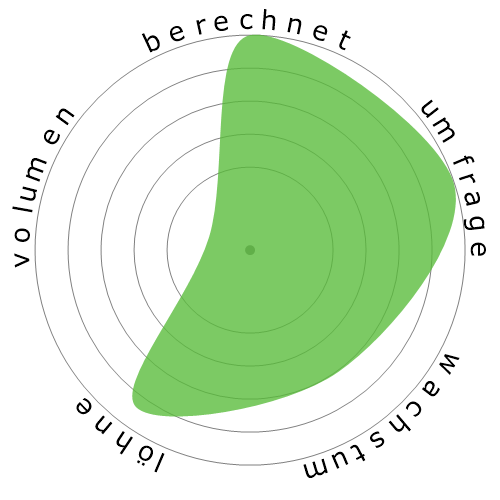Physiker
Wohin möchten Sie als Nächstes gehen?
Oder erkunden Sie diesen Beruf ausführlicher...


Was zeigt diese Schneeflocke?
Was ist das?
Wir bewerten Jobs anhand von vier Faktoren. Diese sind:
- Chance der Automatisierung
- Jobwachstum
- Löhne
- Anzahl der verfügbaren Stellen
Dies sind einige wichtige Punkte, über die man beim Jobsuchen nachdenken sollte.
Personen haben sich auch angesehen
Berechnetes Automatisierungsrisiko
Minimales Risiko (0-20%): Berufe in dieser Kategorie haben eine geringe Wahrscheinlichkeit, automatisiert zu werden, da sie in der Regel komplexe Problemlösungen, Kreativität, starke zwischenmenschliche Fähigkeiten und ein hohes Maß an manueller Geschicklichkeit erfordern. Diese Jobs beinhalten oft komplexe Handbewegungen und präzise Koordination, was es für Maschinen schwierig macht, die erforderlichen Aufgaben zu replizieren.
Weitere Informationen darüber, was dieser Wert ist und wie er berechnet wird, sind verfügbar hier.
Benutzerumfrage
Unsere Besucher haben abgestimmt, dass es eine geringe Chance gibt, dass dieser Beruf automatisiert wird. Diese Einschätzung wird weiterhin durch das berechnete Automatisierungsrisiko unterstützt, welches eine 0,6% Chance der Automatisierung schätzt.
Was denken Sie, ist das Risiko der Automatisierung?
Wie hoch ist die Wahrscheinlichkeit, dass Physiker in den nächsten 20 Jahren durch Roboter oder künstliche Intelligenz ersetzt wird?
Gefühl
Das folgende Diagramm wird angezeigt, wenn genügend Stimmen vorhanden sind, um aussagekräftige Daten zu erzeugen. Es zeigt die Ergebnisse von Nutzerumfragen im Laufe der Zeit und bietet einen klaren Hinweis auf Stimmungstrends.
Gefühlslage über die Zeit (jährlich)
Wachstum
Die Anzahl der 'Physicists' Stellenangebote wird voraussichtlich um 7,2% bis 2033 steigen.
Gesamtbeschäftigung und geschätzte Stellenangebote
Aktualisierte Prognosen sind fällig 09-2025.
Löhne
Im Jahr 2023 betrug das mittlere Jahresgehalt für 'Physicists' 155.680 $, oder 75 $ pro Stunde.
'Physicists' wurden 223,9% höher bezahlt als der nationale Medianlohn, der bei 48.060 $ lag.
Löhne über die Zeit
Volumen
Ab dem 2023 waren 18.350 Personen als 'Physicists' in den Vereinigten Staaten beschäftigt.
Dies entspricht etwa < 0,001% der erwerbstätigen Bevölkerung im ganzen Land.
Anders ausgedrückt, ist etwa 1 von 8 Tausend Personen als 'Physicists' beschäftigt.
Stellenbeschreibung
Führen Sie Forschungen zu physikalischen Phänomenen durch, entwickeln Sie Theorien auf der Grundlage von Beobachtungen und Experimenten und erarbeiten Sie Methoden zur Anwendung physikalischer Gesetze und Theorien.
SOC Code: 19-2012.00
Kommentare (45)
If any junior reads this message, I can only wish you the best. While your work is irreplaceable by AI, your future will be filled with problems where AI cannot assist you. Good luck.
If anything, I can see some simulation aspects or redundant experimental procedures being automated in the near term. But parts that incorporate creative problem solving or the physical intuition needed in determining directions to take research are things that are pretty safeguarded to humans for a bit.
I think those "intuitions" are very difficult to map to general problem-solving algorithms.
We can have a discussion on whether it is possible in the next 200 years, sure, but 20 years? That's laughable. Given that only physicists are qualified to write, train, and optimize the algorithms that would be used to replace them, it will take a long, long, long time.
I suspect that we would need true machine sentience before we could actually start to talk about replacing theoretical and mathematical physicists.
Auf Kommentar antworten